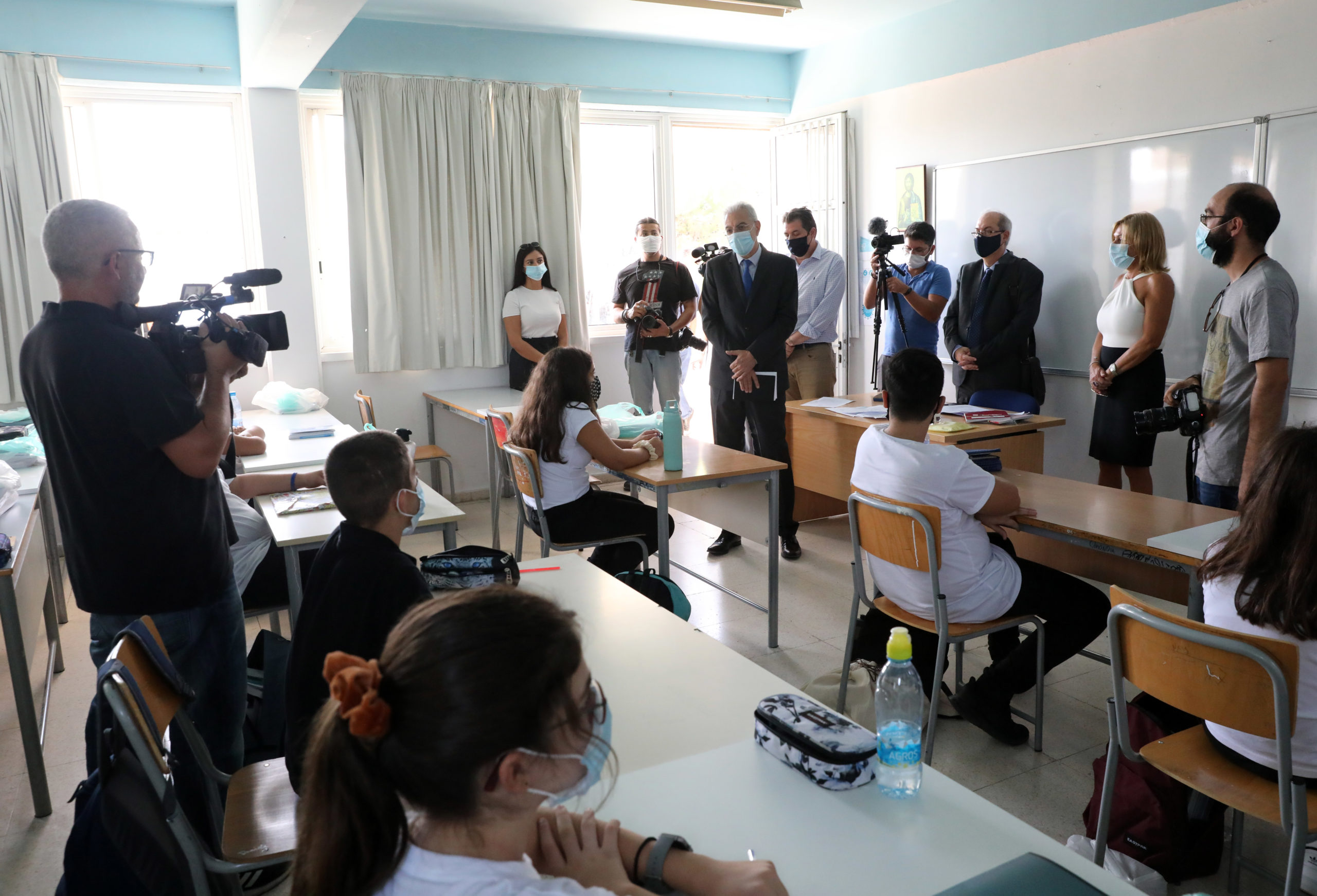By Dr Tassos Anastasiades
Cyprus is launching an ambitious vision for education in 2035, which resonates with the draft vision for 2020, created by members of the Cyprus community and the UNESCO Institute for Lifelong Learning.
Educational reform aims to develop the skills required in the workforce to create enterprise cooperation, combine resources, and guide the creation of a technology base for shared use.
This includes optimising water resources, improving infrastructure and aiding small companies to compete in the global market through innovative products and services that can be marketed from Cyprus.
Links to solar energy, ecotourism and agrotourism will be driven by this alpha generation who need to be well prepared for future challenges.
Educating children to become independent thinkers, globally and ecologically conscious, innovative, communicative, and happy individuals should be the way forward.
“It’s important to understand that the plan is not static; it will change and evolve as the world and the economy changes,” said Takis Klerides, former finance minister and chair of the project.
Educational innovation will generate workers to promote a culture and attitude of equality and equity, ensuring young people go out into the world as well informed, fair-minded critical thinkers and strategic thinkers with innovative skills to adapt to rapid change.
The skilled and technological workforce will lead the vision for 2035.
These are the students who are now in high schools and who will embrace their native culture and “strengthen the international competitiveness of the Cypriot economy, to improve its resilience.”
They will be able to analyse and plan strategically according to adverse internal and external factors; they will be able to think with the ‘big picture’ view to improving sustainable and long-term development.
Improving the skills of the potential workforce to suit the future labour market is key, particularly with the mismatch of qualifications provided, which often does not recognise creative thinkers, an outdated issue being addressed globally.
There is no doubt the key lies in transforming the secondary school system to modern ways of critical thinking and development of digital skills, particularly with assessment-inspiring learning and not test-based learning.
New generation
By seriously investing in education and changing the paradigm of measuring success in schools, producing new generation leaders by “encouraging cooperation between the academic community and businesses and aiming for a digital-friendly business environment” will improve the level of innovation.
We need to change the paradigm without being involved in the financial discussions; money will help – but initial steps do not need money.
They need a passion and belief that the young generation of Cyprus can aspire to become global leaders.
We should release the creative will and minds within our learners who know and manipulate the digital world, the same way we learnt the alphabet.
It is often said, “If you need a solution on your iPad – ask your grandchild.”
So, if you want a solution to move Cyprus towards 2025 – and make a major leap to 2035, ask the new generation.”
We need these young leaders, so start now – not wait until 2035 to evaluate what they are and where they’re going.
The current strategy issued in 2014 points out four priority areas for the improvement of lifelong learning in Cyprus, including:
- a) access to and participation in lifelong learning for all
- b) quality improvement in lifelong learning by strengthening the curriculum, vocational training, guidance, and national skills development
- c) research and development and promotion of lifelong learning
- d) efficient governance of lifelong learning
It defines lifelong learning as a holistic approach covering all kinds of formal and informal learning at all levels, including pre-school, primary, secondary, vocational, higher, and adult education.
We are ready to unpack the meaning of life-long learning.
Education has moved a long way since 2014.
Let’s start the journey towards 2035 and beyond.
Dr Tassos Anastasiades is an innovative educational leader with school leadership positions in UK, Bahrain, Saudi Arabia, China, Nigeria, Zambia, Malaysia, Ghana, and Cyprus










